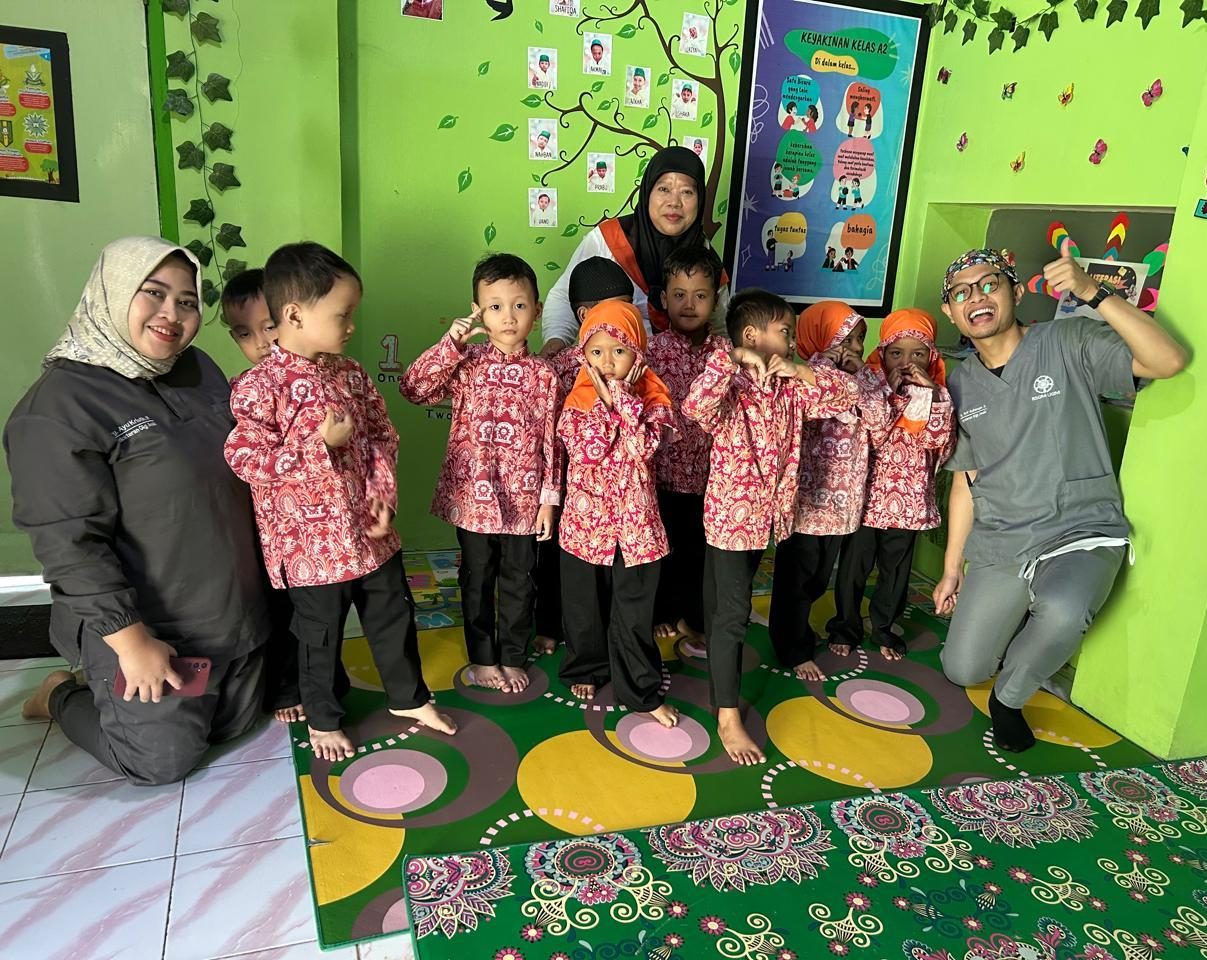On 25 September 2024, residents of the Pediatric Dentistry Specialist Program from the Faculty of Dentistry, Universitas Gadjah Mada (FKG UGM), conducted an educational activity on handwashing at TK ABA Gendingan, Yogyakarta. The activity aimed to teach children the importance of personal hygiene, particularly handwashing, as a fundamental step in preventing the spread of infectious diseases, especially in school environments.
Children, who are still in the process of developing healthy habits, are often exposed to bacteria and viruses that can cause various diseases. Infectious diseases such as diarrhea, flu, and respiratory infections can often be prevented simply by proper handwashing. Studies have shown that washing hands correctly can significantly reduce disease transmission at home and in schools. According to the World Health Organization (WHO), washing hands with soap for at least 20 seconds can effectively remove germs and pathogens that spread through hand contact. “Handwashing is the most effective first step in preventing the spread of diseases among children,” stated Drg. Arif Rahman Setyawan, one of the IKGA FKG UGM residents.
During the educational session, residents from IKGA FKG UGM demonstrated the proper handwashing technique, including essential steps such as using soap, scrubbing all parts of the hands, including the backs, between fingers, and under nails for at least 20 seconds, and rinsing with clean water. They also explained the importance of each step in ensuring that germs and viruses are completely removed. “By washing hands properly, we can reduce the risk of various preventable diseases,” he added.
To help children understand and remember the correct way to wash their hands, the activity was designed to be engaging and fun. Educational songs and interactive games were used to capture the children’s attention. The children were encouraged to practice the handwashing steps under the guidance of the residents. Through this interactive approach, children could learn while playing, making the learning process more enjoyable and memorable.
This educational program was supported by a collaboration with the Yogyakarta City Health Office and the Department of Education, Youth, and Sports. This partnership strengthens efforts to raise awareness about the importance of hygiene among children. Residents also provided educational materials for parents and teachers to ensure that handwashing habits continue at home and in schools.
Through this handwashing education initiative, it is hoped that children will not only understand the importance of washing hands but also apply it in their daily lives as part of a healthy lifestyle. This program represents a small step taken by FKG UGM to support the achievement of the Sustainable Development Goals (SDGs), particularly Goal 3 (Good Health and Well-being), Goal 4 (Quality Education), and Goal 17 (Partnerships for the Goals). By involving children, parents, and the community, we can work together to create a healthier and more sustainable environment for the future.
Contributor: drg. Arif Rahman Setyawan | Author: Diva Luthfiana L

